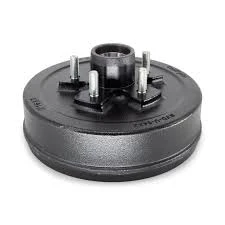
-
 Afrikaans
Afrikaans -
 Albanian
Albanian -
 Amharic
Amharic -
 Arabic
Arabic -
 Armenian
Armenian -
 Azerbaijani
Azerbaijani -
 Basque
Basque -
 Belarusian
Belarusian -
 Bengali
Bengali -
 Bosnian
Bosnian -
 Bulgarian
Bulgarian -
 Catalan
Catalan -
 Cebuano
Cebuano -
 Corsican
Corsican -
 Croatian
Croatian -
 Czech
Czech -
 Danish
Danish -
 Dutch
Dutch -
 English
English -
 Esperanto
Esperanto -
 Estonian
Estonian -
 Finnish
Finnish -
 French
French -
 Frisian
Frisian -
 Galician
Galician -
 Georgian
Georgian -
 German
German -
 Greek
Greek -
 Gujarati
Gujarati -
 Haitian Creole
Haitian Creole -
 hausa
hausa -
 hawaiian
hawaiian -
 Hebrew
Hebrew -
 Hindi
Hindi -
 Miao
Miao -
 Hungarian
Hungarian -
 Icelandic
Icelandic -
 igbo
igbo -
 Indonesian
Indonesian -
 irish
irish -
 Italian
Italian -
 Japanese
Japanese -
 Javanese
Javanese -
 Kannada
Kannada -
 kazakh
kazakh -
 Khmer
Khmer -
 Rwandese
Rwandese -
 Korean
Korean -
 Kurdish
Kurdish -
 Kyrgyz
Kyrgyz -
 Lao
Lao -
 Latin
Latin -
 Latvian
Latvian -
 Lithuanian
Lithuanian -
 Luxembourgish
Luxembourgish -
 Macedonian
Macedonian -
 Malgashi
Malgashi -
 Malay
Malay -
 Malayalam
Malayalam -
 Maltese
Maltese -
 Maori
Maori -
 Marathi
Marathi -
 Mongolian
Mongolian -
 Myanmar
Myanmar -
 Nepali
Nepali -
 Norwegian
Norwegian -
 Norwegian
Norwegian -
 Occitan
Occitan -
 Pashto
Pashto -
 Persian
Persian -
 Polish
Polish -
 Portuguese
Portuguese -
 Punjabi
Punjabi -
 Romanian
Romanian -
 Russian
Russian -
 Samoan
Samoan -
 Scottish Gaelic
Scottish Gaelic -
 Serbian
Serbian -
 Sesotho
Sesotho -
 Shona
Shona -
 Sindhi
Sindhi -
 Sinhala
Sinhala -
 Slovak
Slovak -
 Slovenian
Slovenian -
 Somali
Somali -
 Spanish
Spanish -
 Sundanese
Sundanese -
 Swahili
Swahili -
 Swedish
Swedish -
 Tagalog
Tagalog -
 Tajik
Tajik -
 Tamil
Tamil -
 Tatar
Tatar -
 Telugu
Telugu -
 Thai
Thai -
 Turkish
Turkish -
 Turkmen
Turkmen -
 Ukrainian
Ukrainian -
 Urdu
Urdu -
 Uighur
Uighur -
 Uzbek
Uzbek -
 Vietnamese
Vietnamese -
 Welsh
Welsh -
 Bantu
Bantu -
 Yiddish
Yiddish -
 Yoruba
Yoruba -
 Zulu
Zulu
what's better drum or disc brakes
Drum vs. Disc Brakes Which is Better?
When it comes to vehicle braking systems, one of the most debated topics among car enthusiasts and mechanics alike is the comparison between drum and disc brakes. Both types of braking systems have been utilized in various vehicles over the years, each with its distinct advantages and drawbacks. So, which one is better? The answer often depends on the context in which the brakes are used and the preferences of the driver.
Understanding the Basics
Drum brakes consist of a cylindrical drum that rotates with the wheel. Inside this drum are brake shoes lined with friction material. When the brakes are applied, the shoes expand outward against the inner surface of the drum, creating friction that slows down the vehicle. Disc brakes, on the other hand, utilize a flat disc that spins with the wheel. When the brakes are activated, calipers squeeze brake pads against the disc, generating the necessary friction to decelerate the vehicle.
Performance Considerations
Disc brakes generally offer superior performance compared to drum brakes. They provide shorter stopping distances and better heat dissipation. This is due to their design, which allows for more effective cooling through greater surface area and better airflow. Disc brakes are less prone to fading, which occurs when the brakes overheat and lose effectiveness—an issue often seen with drum brakes during prolonged use, such as in downhill driving scenarios.
Additionally, disc brakes tend to perform better in wet conditions. Water can collect within drum brakes, leading to reduced friction and increased stopping distances. Disc brakes, being open systems, are less affected by moisture and remain consistent in performance regardless of the weather.
what's better drum or disc brakes

Maintenance and Durability
When it comes to maintenance, drum brakes usually require more frequent adjustments and inspections. As the brake shoes wear down, they need to be reset to maintain optimal performance. On the contrary, disc brakes are generally easier to maintain because they do not require frequent adjustments and are less susceptible to moisture-related issues.
However, drum brakes are often more durable in certain conditions. They are less exposed to elements like dirt and debris, which can be advantageous in harsh environments. Therefore, for vehicles operating in off-road situations or in regions with heavy weather conditions, drum brakes might offer an edge in longevity.
Cost Efficiency
From a cost perspective, drum brakes are typically cheaper to manufacture and repair. This is why many economy cars still utilize drum brakes on the rear wheels. For drivers who prioritize cost savings over performance, especially in city driving scenarios where high-speed braking is less crucial, drum brakes may be sufficient.
Conclusion
Ultimately, the choice between drum and disc brakes comes down to the specific needs of the driver and the type of vehicle. For high-performance vehicles, safety-oriented applications, or anyone who frequently faces challenging driving conditions, disc brakes are often the better choice due to their superior performance, reliability, and maintenance ease. However, for budget-conscious consumers who primarily drive in less demanding environments, drum brakes can still provide adequate performance at a lower cost. As the automotive industry continues to evolve, the trend is leaning toward disc brakes as technology advances, but understanding the context of use is key to making the right choice.
-
What Are Drum BrakesNewsJul.07,2025
-
Understanding Brake Drum MaterialNewsJul.07,2025
-
Semi-Trailer Brake Drum: A Key Component for Extreme Loads and Long-Distance TransportNewsJul.07,2025
-
Drum Brake Pads for SaleNewsJul.07,2025
-
Brake Drums for SaleNewsJul.07,2025
-
Brake Drum ManufacturerNewsJul.07,2025
-
Aluminum Brake Drums: The Future of High-Performance CarsNewsJul.07,2025
